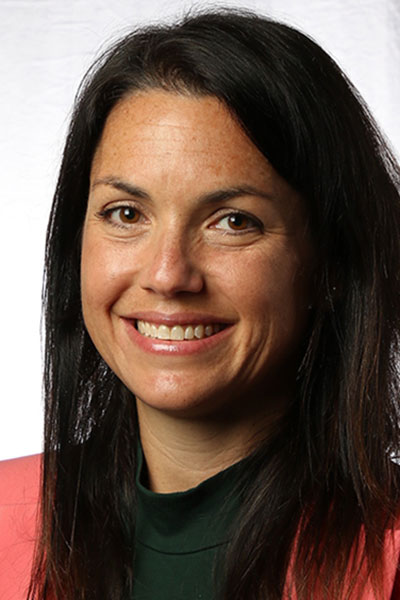The American Diabetes Association® (ADA) and partner organizations are on track to publish a new consensus statement on the standardization of person-reported outcomes (PROs) this summer. The new consensus statement builds on a 2016 ADA position statement on psychosocial care that recommended the use of patient-appropriate standardized and validated tools to assess diabetes distress, depression, anxiety, disordered eating, and cognitive capacities.

“Diabetes is unique in that clinical outcomes are controlled largely by the patient,” said David G. Marrero, PhD, Adjunct Professor of Health Promotion, University of Arizona Mel and Enid Zuckerman College of Public Health. He has lived with type 1 diabetes for 45 years.
“We are asked to do certain things by our providers. Sometimes that works, sometimes it does not. And for too long, we did not think too deeply about the lived experience of diabetes,” he continued. “I can confirm that PROs are not part of the clinical profile.”

Barnard-Kelly, PhD
Dr. Marrero is co-lead for the introduction and conclusion chapters of the new consensus statement. He opened the symposium Standardization of Person-Reported Outcomes (PROs)—A Consensus Statement. The session can be viewed on-demand by registered meeting participants at ADA2023.org. If you haven’t registered for the 83rd Scientific Sessions, register today to access the valuable meeting content through August 28.
Diabetes is more than numbers, Dr. Marrero said. Diabetes is a complex interaction where individual behavior meets biological reality.
“Diabetes relies on the patient’s own engagement in therapeutic behaviors,” he explained. “The lack of systematically integrating PROs into the research on and the clinical models for care of diabetes is a significant deficit.”
PROs are not a new concept, added co-lead Katharine D. Barnard-Kelly, PhD, Professor of Health Psychology, Bournemouth University, Hampshire, United Kingdom (UK). The World Health Organization (WHO) recognized PROs in 1948, while the U.S. Food and Drug Administration (FDA) qualified the first PRO for use specifically in diabetes in 2020. The 21st Century Cures Act includes PROs in the definition of clinical outcome assessment.
The forthcoming consensus statement is intended to define a set of core outcomes for PROs in diabetes research and make recommendations for the next steps in harmonizing PROs. The statement addresses areas of interest including:
- physical/functional status
- psychological well-being
- social well-being
- behavior
- person-reported experience measures
- depression/anxiety
- diabetes distress
- hypoglycemia fear
- sleep
- sexual health
- impact of technology/therapies
- treatment satisfaction
- perspectives of people with diabetes
- self-efficacy

“We are not recommending specific measures, we are listing measures that may be useful,” Dr. Barnard-Kelly said. “We are hoping the consensus statement will provide a road map.”
Diabetes is a high-maintenance condition that places a high burden on people, said Richard IG Holt, PhD, FRCP, Professor in Diabetes and Endocrinology, University of Southampton, Southampton, UK.
“There is a lot more to the assessment of diabetes than just looking at the numbers,” he explained. “People with diabetes have a high burden of self-reported mental health distress. They want to talk about the things that matter to them.”
Current guidelines from the ADA, the UK National Institute for Health and Care Excellence, and other bodies recommend that clinicians use PROs, he added, but few clinicians actually do. Half of clinicians surveyed said they asked patients how diabetes impacted their lives, but fewer than a quarter of people with diabetes report the providers asking how diabetes affects their lives.
One barrier is uncertainty. There are multiple measures of the impact of diabetes on an individual’s life, and providers may not know which ones to use. Providers may also be fearful.

“If you ask these questions, you may make the situation worse, or so providers fear,” Dr. Holt explained. “Many lack training, and most lack time and resources. Clinicians need better education and training, clearer guidance about the use of PROs, and clear care pathways and resources to help address problems they may identify.”
PRO outcome measures (PROMs) are complex. They rely on psychometrics to assess subjective experiences and perceptions of diabetes and diabetes care, constructs that cannot be measured objectively.
“People with diabetes should be involved from the earliest steps in developing PROMs,” said Jessica S. Pierce, PhD, Research Scientist, Nemours Center for Healthcare Delivery Science, and Associate Professor of Medicine, University of Central Florida College of Medicine. “You have to use PROMs that are important to people with diabetes, not just to the researchers, if you expect to make a difference.”

For many providers, life with diabetes is all about numbers, mean glucose levels, A1C, time in range. But life is more than numbers.
“I have been fearful of the risk of developing complications since the day I was diagnosed with diabetes,” said Jennifer L. Sherr, MD, PhD, Professor of Pediatric Endocrinology, Yale School of Medicine. “I was told that complications are not a matter of if, but of when. Only considering the numbers negates how living with this chronic condition impacts both myself and my entire family.”
Moving beyond numbers to the myriad ways diabetes affects daily life is critical for researchers, for clinicians, and for those living with diabetes, Dr. Sherr said.
“We spend 99% of our time managing diabetes alone, not with health care providers,” she said. “PROs must be included in the trial design of all new therapies and technologies. We need ways to integrate PROs in clinic. And we have to allow those living with diabetes to have a voice in trial design and provide feedback on ways to improve clinical care delivery. The art of medicine is seeing the full picture of the person, not just the numbers.”